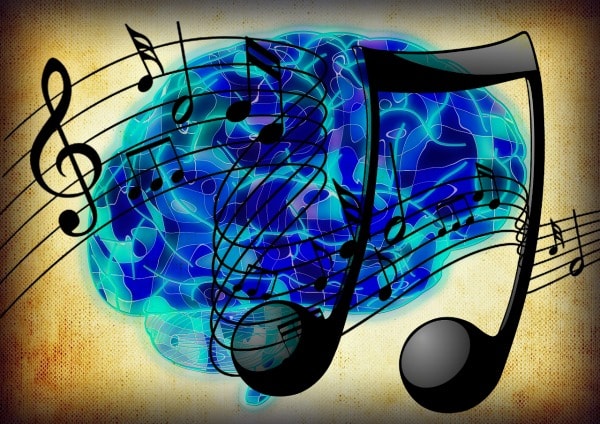How Music Affects The Brain
How Music Affects The Brain
By using neuroimaging, it has been proven how music affects the brain. The brain is stimulated in many different areas when music is listened to. It stimulates not only the emotional centres of the brain, but also activates memory, motor control, visual imagery, expectation of what is going to happen next, spatial processing and abstract thinking. Music forms one of the most powerful ways of activating large parts of the brain simultaneously.
Music and development
Music encourages our learning on many different levels by stimulating developmental growth, cognitive improvement, emotional awareness and physical fitness. Second only to the power of the sense of smell, music connects us to our memories, linking meaningful experiences within ourselves and with significant others in our lives. Along the evolutionary continuum, music even precedes the development of speech.
Power of music
Many people gain a spiritual connection through music as it helps to break through the barriers of our logical mind, aligning us more closely to our spiritual essence, by releasing us from judgements, anxieties and our self-imposed limitations.
Music is evocative. It can raise us to energetic frenzies and can soothe away our worries, it can help us reconnect with our heartaches and can lift our spirits. Music can be fun, relaxing and motivating and has a positively impactful effect on our minds and bodies.
Music in the womb
There are conflicting reports as to how music affects the brain of the developing foetus. I like to think it has a positive effect.
Auditory ability is one of the first of our five senses to develop and the last that we lose. If we respond positively to music when we are small, then I can’t see why we wouldn’t respond positively in the womb too.
While I was pregnant, I heard stories about the effectiveness of listening to music by Mozart as it is reported to help the developing baby to become more intelligent. I didn’t put it to the test, but I’m sure that if a mother is listening to music that she finds soothing it will have a soothing effect on her unborn foetus too.
A relaxed mind is a mind open to learning. Click To TweetMothers across cultures help their babies to settle by gently rocking them and singing familiar lullabies. It is recognized that babies respond to music that their mothers listened to while pregnant. My children sang way before they began to talk. As early as they were able to form constructed sounds, when they woke in the morning, they would sing or hum until I picked them out of their cribs. What better way to start the day?
Music and toddlers
As parents we sing to our young children. We sing nursery rhymes and if we are using a book of rhymes our babes learn the words and join in, eventually being able to recognize some of the words they are singing on the page. Nursery rhymes help to bond the magic between parents and children. They are stories that young children can enjoy and identify with and which parents often fondly remember from their own childhoods, as they were taught by their parents. Music has an invisible way of crossing generational boundaries.
Music and motor skills
Music helps children to develop their motor skills as they dance and bob to their favourite sounds. Tigger and Winnie the Pooh were real winners in our household and had the children singing and dancing to their heart’s content. At nursery age, music helps children to bond as they create music or dance together. And the most important part is that they are having fun and bonding at the same time.
I remember watching a group of young children at a school concert. My two children weren’t even among that group, but their combined voices stirred something within me and I found myself teary eyed. Music has the ability to touch something deep within us, without really knowing how or why. To see all those little children singing the songs they had learned in unison, in their young voices, not caring whether they are in our out of tune was visceral, beautiful and totally natural.
Music and memory
Music enhances memory recall at all ages, becoming especially evident as children reach their teen years. I am constantly amazed by the array of lyrics my daughter and her friends can recall. They know so many I sometimes question how they spend their time at school.
Music in the form of learning an instrument also offers a multitude of benefits from physical dexterity to confidence, to a sense of achievement. My son plays the drums and appears to have octopus-like dexterity over each of his limbs.
During teen years and beyond, music helps young adults to belong to a community of like-minded souls. Music is immensely powerful on so many levels. It helps to build friendships and encourages confidence. It help us to feel part of the crowd, or to define our individuality.
Music and relaxation
There are many studies which suggest that listening to the right kind of music, and importantly, the type of music that you prefer, can help you to study and focus more effectively. Apparently by listening to music you like helps you focus, whereas listening to music you do not identify with nor enjoy has a negative impact on study. My daughter is revising for her GCSEs at the moment and is listening to soft piano music playing in the background. Not only does it help her focus, it creates a soothing and relaxing environment throughout the house. The music is by Ludovico Einaudi and a link for our favourite album is below:
Music and dementia
Music helps to unlock memories and stimulate the brain by re-igniting emotions which are associated with music. Studies about how music affects the brain show that people suffering from dementia who have received singing therapy benefit from improved cognitive functioning after the singing treatment.
Emotional expressiveness often weakens as dementia progresses, but for patients who are still able to move about, music can lead to dancing and emotional closeness with their caregivers. Auditory channels are among the last of the senses of patients with dementia to be lost, making the use of music therapy vitally important in enabling the patient to remain connected on some level with his/her environment.
I know a dear elderly lady who has been suffering dementia for several years . She has lost many of her physical abilities, but has just recently started singing therapy at a care home. It has transformed her life. Everywhere she goes she either hums to herself or sings little ditties. And despite living surrounded by her fragmented memories, people she sometimes recognizes and sometimes doesn’t, she is happy. When the outlook is so bleak for a person with advanced dementia, the happiness that singing therapy evokes is likely one of the most valuable gifts you could offer.
Singing therapy for a dementia patient is one of the most valuable gifts you can offer Click To TweetCheck out this video below and see for yourself how music affects the brain in a life-enhancing way. Harry who has latter stage dementia is transformed by listening to a short amount of his favourite music. The music literally transforms him:
https://youtu.be/fyZQf0p73QM
Music and stroke
Music therapy has benefits for people who have suffered a stroke. Because music and speech share the same cognitive pathways, by listening to music, the speech centres of the brain can be exercised and can result in the recovery of the ability of speech.
It has been shown that singing activates the left hemisphere of the brain, while listening to music activates the right hemisphere. In a class format, watching other people perform stimulates the visual centre of the brain, which means that singing not only encourages inclusion, improvement of mood and movement, it also helps to give the brain an exercise session and strengthen neural pathways that may have weakened or faded.
Despite different areas of the brain being responsible for different senses – smell, sight, sound, smell and touch – the brain uses what it receives from one sense to help it understand another. Music and movement are strongly linked which means that when the brain hears music, electrical impulses are also activated within the areas of the brain responsible for movement.
When we hear music, most of the music signal is passed through the auditory nerve into the brain for processing, however a small part of music heads straight to the motor nerves in our spinal column which means our bodies pick up on the rhythm before we’ve even noticed we’re tapping our feet, or walking to the rhythm of the music. By tapping into the music that heads straight to the motor nerves, people who have suffered strokes can be helped to recreate movement and strength in their bodies.
By tapping into the music that heads straight to the motor nerves, people who have suffered strokes can be helped to recreate movement and strength in their bodies Click To TweetThe rhythm of music can help a patient to improve their range of movement and muscular control by encouraging the muscles of the body to follow the rhythm. Listening to music helps stroke victims to improve their verbal memory and focused attention more quickly than those patients who do not receive music therapy.
Music and homelessness
Only recently, Streetwise Opera performed an abridged version of Bach’s St Matthew Passion. Streetwise Opera is an initiative to help homeless and former homeless people join together to perform classical music together.
It has been so encouraging to follow their exploits as they make friends, find connections and develop new skills they weren’t aware they had. Many of the men interviewed explained how Streetwise has helped them to gain a sense of self-esteem and for many has been a life-saver.
Click here to read more about Streetwise.
Music helps us exercise
Music can inspire us to exercise and keep us going faster and for longer. The reason for this is because listening to music competes for our brain’s attention and can help to dampen the sensations of fatigue. I remember running on a treadmill and getting to the end of my endurance when “Underworld: Born Slippy” from the film “Trainspotting” was played over the loud speaker. I couldn’t believe how it changed how I was feeling. I virtually sprinted through another however many minutes of running.
I wish I could say I have managed to replicate that same level of super human performance more regularly, but the important nugget to take from this is that music had a massive effect on my mind and body at that time. I’ve even heard people refer to music as a legal performance-enhancing drug. USA Track and Field actually banned competitors who race for rewards or money from listening to music during the race. This is to prevent them from what they perceive as having a competitive edge over non-music-playing competitors.
Music and fatigue
Have you ever been dancing and have felt tiredness creeping in, so you tell yourself that after the next song, you’re going to have a break, and then a favourite, high energy song gets played, and you suddenly lose all sensations of fatigue while you pound the floor for another few minutes? Somehow music manages to inspire extra energy. Music lifts your mood and persuades you to keep on going.
Music unites us
Finally, music unites us. It brings us together on a global scale in outpourings of grief, relief efforts and celebrations. Band Aid recorded “Do They Know It’s Christmas” in 1984 in response to the famine in Ethiopia. Combined with television footage of the famine, it became the fastest selling single in UK history, as people rallied to buy it and to donate towards helping the relief efforts in Ethopia.
Music and grief
In 1997 Elton John’s “Candle In The Wind”, became the biggest selling single of all time in tribute to Princess Diana’s death. I remember driving into London on the day of her death, the BBC radio stations were playing classical music and I was sat in my car on the Hammersmith flyover in a traffic jam. All I could see of my neighbouring drivers were faces heavily etched with the grief of her loss.
Sarah McLachlan’s recording of “In The Arms Of An Angel” has become synomymous with tributes of those we have loved and lost. It became associated with the shooting of twenty 6 and 7 year olds at the Sandy Hook Elementary School in Connecticut in 2012. To search for this song on youtube brings up list after list of personal and group tragedies.
Music and festivals
Live music at festivals is fun and exhilarating. Nothing quite breaks through the barriers of social ranking as a music festival where everyone is joined in their passion for live music and in the main, getting muddy together.
The shared enjoyment with many thousands of other like-minded souls is scientifically proven to bring with it health benefits by helping to reduce stress, bringing people closer together and the long walks to and from the various tents (beer tent included).
To be one of several thousand in a sea of heaving bodies jumping, grinding and moving to the beat generates an energy and sense of belonging hard to match in other areas of life. The many hours spent outside in the open air can help to shake off the office blues and reconnect you to nature. You get a good dose of UV and create lasting friendships and some of the best memories.
Music in its many forms has been my constant companion throughout different phases and experiences of my life. When I hear certain pieces of music, they transport me back to those times as though I was in a time capsule, each emotion clearly felt, the place where I heard that music easily recalled, the people associated with that music, fondly remembered.
Music is an always available friend, ready to hold your hand in whatever circumstances you require, ready to stimulate or to soothe you. And if you are not able to listen to music, create your own. Sing, hum, whistle – they all have an uplifting effect on the body and mind, and if you don’t like the sound of your own voice, step outside the door and enjoy the music of nature. One of the purest, most therapeutic sounds you will hear.
What are your experiences of music?
How has music helped you? Leave a comment in the box below!













